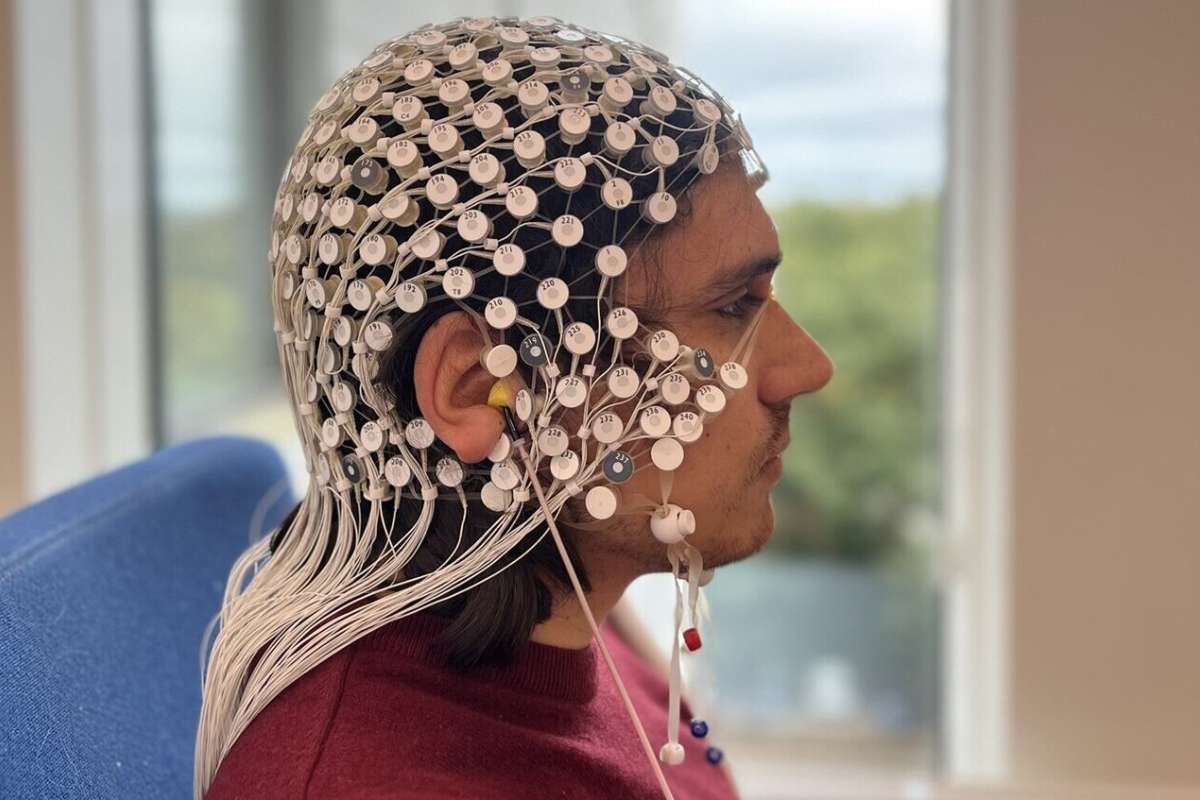Key Points:
- EEG test predicts SSRI sexual side effects.
- Higher serotonin raises the risk.
- Could guide personalized treatment.
Researchers from Copenhagen University Hospital have identified a potential brain test that predicts which patients taking antidepressants may experience antidepressant side effects, including difficulty achieving orgasm. The findings were presented at the European College of Neuropsychopharmacology (ECNP) conference in Amsterdam.
The study focused on patients with depression treated with selective serotonin reuptake inhibitors (SSRIs), a common class of antidepressants that includes drugs such as Prozac and escitalopram. These medications can improve mood but are known to cause antidepressant side effects like sexual dysfunction in up to 70 percent of users.
Lead researcher Dr. Kristian Jensen said the study could help identify patients who are at risk of such side effects before they start treatment. “We discovered that people with higher serotonin activity before treatment started were much more likely to develop sexual side effects by the end of the eight-week antidepressant course, especially difficulty reaching orgasm,” Jensen said.
How the test works
The team studied 90 patients diagnosed with depression and used an EEG-based test called Loudness Dependence of Auditory Evoked Potentials (LDAEP) to measure serotonin activity in the brain. The non-invasive procedure involves playing sounds at varying volumes while monitoring brainwave responses through a 256-electrode headset.
The LDAEP test provides an indirect measure of serotonin levels—lower LDAEP readings indicate higher serotonin activity. Researchers found that patients with higher serotonin activity before treatment were significantly more likely to experience sexual antidepressant side effects after starting SSRI medication.
Using the LDAEP readings combined with patient-reported data on sexual function, the team predicted difficulty reaching orgasm with 87 percent accuracy. Jensen noted that a larger sample is needed to determine whether the same accuracy applies to erectile dysfunction.
Implications for depression treatment
Currently, patients often learn about antidepressant side effects only after starting antidepressant therapy. Jensen said this new approach could help physicians personalize treatment. “Measuring serotonin activity via the LDAEP test at the start of the course of antidepressants allows us to predict the likelihood of later sexual problems due to the SSRI,” he said.
If confirmed, this could help clinicians select medications that minimize side effects, improving treatment adherence and patients’ quality of life. “This could lead to better treatment options for depression and fewer people discontinuing medication due to sexual dysfunction,” Jensen added.
Expert reaction
Professor Eric Ruhe, an expert in difficult-to-treat depression at Radboud University Medical Center in the Netherlands, called the research “very interesting” and said it could have practical applications. “When replicated, this type of test might reliably help to know beforehand whether a patient will have sexual adverse effects or not,” Ruhe said.
He noted that for many patients concerned about sexual side effects, knowing their risk in advance could encourage them to begin treatment. Ruhe also encouraged researchers to explore whether similar methods could identify which antidepressant might best suit individual patients.
Next steps
The researchers plan to expand their work through a larger study involving 600 patients to examine how serotonin levels and sex hormones together influence sexual function during antidepressant treatment.
Jensen said the LDAEP test itself is simple and quick, taking about 30 minutes. Although not yet available for clinical use, he believes that could change if further studies confirm its accuracy.
The research is under peer review. Most participants in the current study were young, with an average age of 27, and 73 percent were women. Jensen said future research will include more men and a wider age range to ensure broader applicability.
If validated, the LDAEP test could become an important tool for tailoring depression treatment while minimizing one of the most distressing antidepressant side effects of antidepressant therapy.
Visit The Lifesciences Magazine to read more.







